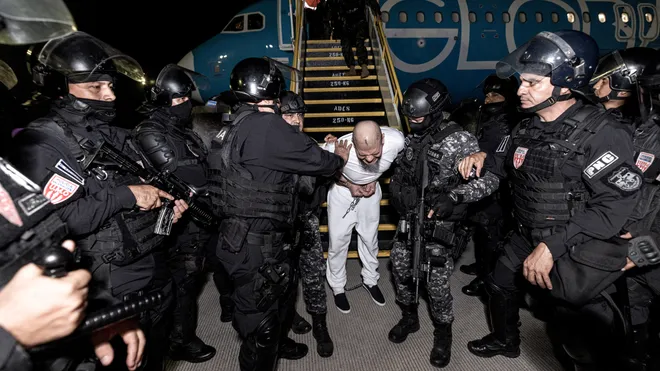AURORA, Colorado ‒ The immigration judge looked over the crowded courtroom and called his next case: “Jefferson José? Jefferson José?”
No one answered.
Judge Joseph Imburgia again scanned the courtroom buried deep within a sprawling U.S. Immigration and Customs Enforcement detention facility in suburban Denver, looking over the rows of men in orange or red detainee clothing. Venezuelan migrant Jefferson José Laya Freites, 33, was due in court for a pending asylum-and-detention hearing.
He wasn’t there.
Stepping forward, an attorney with an immigrant rights group told Imburgia that Laya Freites’ wife believed he’d been transferred to Texas following a Denver-area traffic stop, and then shipped to a notorious Salvadoran prison. Trump officials recently signed a $6 million detention deal with El Salvador to hold U.S. detainees.
“She saw her husband on video at the Salvadoran prison,” attorney Monique Sherman told Imburgia.
The judge turned to federal prosecutor Tanga Bernal for clarification. She said Laya Freites was released to “local authorities.” When Imburgia pressed for more details, Bernal said she needed to get permission from her superiors.
“I don’t know where he is and he’s on the docket today,” Imburgia said. “The government needs to show me something about where this individual is.”
Across the U.S., people like Laya Freites have been similarly vanishing ― and re-emerging in one of El Salvador’s most notorious prisons.
There’s little evidence to support the administration’s contention that large numbers of the deportees are members of the violent Venezuelan prison gang Tren de Aragua. Reporting by USA TODAY last fall found ICE, the FBI and law enforcement agencies in states with reports of the gang’s activity had tallied fewer than 135 members of the gang, while the Trump administration says it deported more than 200 members to El Salvador last week alone.

